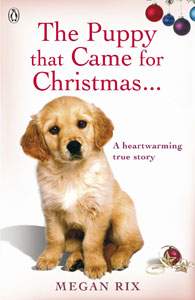Coming up with a title:
Some authors don't write a word until they’ve
thought up a title for their work, whilst others spend weeks chewing their
pen’s end and pulling tufts of hair out trying to come up with just the right
one, only to have their publisher announce that they've thought of something
much better.
My first children’s novel to be published (back
in 1997) was a gritty urban school based story with an extremely elusive title.
Whatever I suggested my publishers, Puffin, didn't like. At one point there was
a class of thirty or so 10 year olds being read the manuscript and trying to come
up with something suitable but my publisher didn't like any of those either.
 Finally my then editor, the lovely Lucy Ogden, told me they'd decided my book would be called 'The Master of Secrets' and
later I found there was also going to be a picture of my anti-hero, Gabriel
Harp, on the cover rather than the story’s real hero, Raj.
Finally my then editor, the lovely Lucy Ogden, told me they'd decided my book would be called 'The Master of Secrets' and
later I found there was also going to be a picture of my anti-hero, Gabriel
Harp, on the cover rather than the story’s real hero, Raj.
Much as I loved working with Lucy I found the
publisher’s title to be confusing for readers who assumed, quite naturally,
that they were going to be reading a fantasy novel.
Do titles make a difference to book sales?
Yup: When 'Dancing Harriet' was about to be published by Chicken House my editor told me the feedback from Scholastic in the USA was that they would prefer it to be Harriet Dancing.
Harriet Dancing the book became.
'Chip's Dad' was originally ‘Colin's Dad’ until
the publisher asked for it to be changed (I really should have realised it was
going to be aimed at the US - which is the only place it sells and asked for a
larger royalty than the pittance the educational publisher - who seem to have
now gone bankrupt - thought was fair).
 ‘Little Rex’ started off as a crocodile with
another name not just a title but a whole species change (I think – although
crocs and dinosaurs must be related....) Then my publishers in the USA asked for the title to be Little Rex, Big Brother which was a brilliant idea because now I could have Little Rex and the Big Roar, Little Rex and the Big Mud Monster, Little Rex and the Big Egg even Little Rex's Big Day....
‘Little Rex’ started off as a crocodile with
another name not just a title but a whole species change (I think – although
crocs and dinosaurs must be related....) Then my publishers in the USA asked for the title to be Little Rex, Big Brother which was a brilliant idea because now I could have Little Rex and the Big Roar, Little Rex and the Big Mud Monster, Little Rex and the Big Egg even Little Rex's Big Day.... And finally my 2010 memoir written under the pseudonym of
Megan Rix was originally 'The Puppy Mum' (my title) then ‘Puppies from Heaven’
(my agent’s title) before becoming ‘The Puppy that Came for Christmas’
(publisher’s choice). I liked this one – although with it’s pink cover the book
does very often get mistaken for a children’s book rather than an adult one.
And finally my 2010 memoir written under the pseudonym of
Megan Rix was originally 'The Puppy Mum' (my title) then ‘Puppies from Heaven’
(my agent’s title) before becoming ‘The Puppy that Came for Christmas’
(publisher’s choice). I liked this one – although with it’s pink cover the book
does very often get mistaken for a children’s book rather than an adult one.What title horror stories / experiences have you had?
 And speaking of HORROR I wanted to let you know
that I am going to be onstage around a cauldron talking about my Bella Donna
books at SCAREFEST 3 on Saturday the 6th October at The Civic, Crosby from 1pm.
Please come along if you can. It should be WILD. Tommy Donbavand, the writer of
Scream Street, is hosting an interactive game show. There’s a budding author's
workshop from 10-30-12, an exclusive staging of the 'Spook's Apprentice' and
the 'Doom Rider' show from 4-5.30, and a 'Spook-Tacular Extra-GORE-Vanza' in the
evening.
And speaking of HORROR I wanted to let you know
that I am going to be onstage around a cauldron talking about my Bella Donna
books at SCAREFEST 3 on Saturday the 6th October at The Civic, Crosby from 1pm.
Please come along if you can. It should be WILD. Tommy Donbavand, the writer of
Scream Street, is hosting an interactive game show. There’s a budding author's
workshop from 10-30-12, an exclusive staging of the 'Spook's Apprentice' and
the 'Doom Rider' show from 4-5.30, and a 'Spook-Tacular Extra-GORE-Vanza' in the
evening.More info from the wonderful Tony Higginson at www.formbybooks.co.uk
PS Have just spent all weekend re-vamping my websites so if you have time to click by it’d be nice to see you at www.ruthsymes.com or www.meganrix.com
























